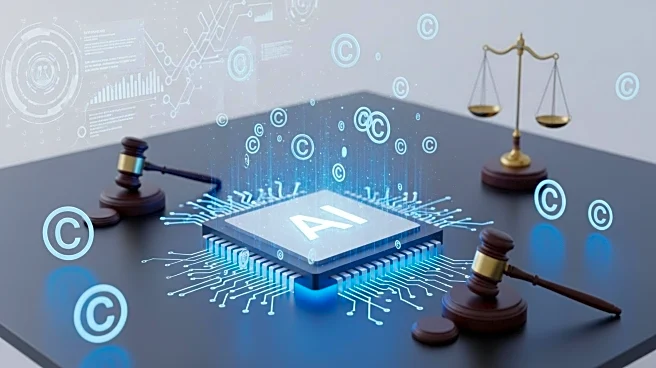What is the story about?
What's Happening?
OpenAI has launched its updated video generation model, Sora 2, which is capable of creating animated videos featuring copyrighted characters such as Pikachu and SpongeBob SquarePants. The model trains on licensed art by default, requiring copyright holders to opt out actively. This approach has led to legal challenges, as companies like Disney, NBC, and Warner Bros. have sued similar AI platforms for using their intellectual property without permission. The model's ability to generate deepfakes of public figures has also raised concerns, despite OpenAI's claims of safeguards against such misuse.
Why It's Important?
The use of generative AI models like Sora 2 poses significant challenges to copyright laws and the creative industry. By allowing the generation of content featuring copyrighted characters, OpenAI risks legal repercussions and undermines the value of original artistic work. This development could lead to increased litigation from companies seeking to protect their intellectual property. Additionally, the potential for AI-generated content to replace human animators raises concerns about job security and the future of creative professions, as companies may opt for cost-cutting measures at the expense of quality and authenticity.
What's Next?
As legal battles unfold, companies affected by Sora 2's use of copyrighted material may seek injunctions or settlements to prevent further unauthorized use. The creative industry might push for stricter regulations on AI-generated content to safeguard intellectual property rights. Artists and animators may advocate for ethical standards in AI development to ensure their work is not exploited. OpenAI may need to revise its model's training protocols to comply with copyright laws and address public concerns about deepfake capabilities.
Beyond the Headlines
The rise of AI-generated content challenges traditional notions of creativity and ownership, prompting discussions on ethical AI use and the balance between innovation and protection of intellectual property. The situation highlights the need for updated legal frameworks to address the complexities of AI technology and its impact on various industries.
















